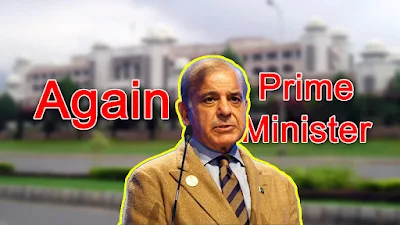Shehbaz Sharif has returned to the position of Pakistan's Prime Minister for a second term, taking over from his brother who declined a fourth term. His crucial role in managing a diverse coalition for 16 months, following the ousting of Imran Khan, has been instrumental in the country's political landscape.
 |
| Pakistan's Prime Minister for a second term |
At 72, Sharif secured parliamentary approval to resume the role he held until August when the parliament dissolved ahead of last month's elections. Since then, Pakistan has been under a caretaker government. Despite his elder brother Nawaz Sharif winning a seat in the assembly, he opted not to lead a minority coalition government, as revealed by his daughter Maryam.
The Pakistan Muslim League-Nawaz (PML-N) party, led by the Sharif brothers, secured 80 seats out of the 264 contested in the recent elections. However, they received support from other parties to secure a majority.
Shehbaz Sharif's earlier tenure as Prime Minister saw him successfully holding the coalition together after Imran Khan's removal in 2022. He played a pivotal role in securing an International Monetary Fund (IMF) bailout last year, addressing economic challenges.
Before his prime ministerial role, Shehbaz Sharif was primarily recognized as an administrator, having served as chief minister thrice in Punjab, the country's largest province. As Prime Minister, he assumed the role of peacemaker among coalition parties with varying policy stances.
One of Sharif's notable achievements was securing the IMF bailout, preventing a debt default. However, his government faced challenges, including high inflation reaching 38%, attributed to structural reforms mandated by the IMF program.
The current economic crisis in Pakistan involves high inflation, around 30%, and slowing economic growth at approximately 2%. Sharif faces the challenge of negotiating a new extended IMF deal as the current program expires next month.
Maintaining relations with the military, pivotal to Pakistan's stability, is a key focus for Sharif. Unlike his brother, he is perceived as more acceptable and compliant by the military, a factor that might aid in navigating political dynamics.
Addressing economic challenges involves privatizing state-owned enterprises and attracting foreign investments. The Sharif family's ties with Saudi Arabia and Qatar could play a role in securing investments for various projects in Pakistan.
Shehbaz Sharif's responsibilities extend to managing relationships with major allies like the U.S. and China. Additionally, he must navigate complex ties with neighboring countries, including India, Iran, and Afghanistan.
Born into a wealthy Kashmiri-origin family in Lahore, Sharif started his political career as the chief minister of Punjab in 1997, known for his efficient administrative style. He faced political upheavals during his brother's ousting in 1999 and later took on a prominent role in the PML-N after his brother's conviction in 2017.
Despite challenges, Shehbaz Sharif, married twice with two sons and two daughters from his first marriage, is known for his workaholic nature. One of his sons is involved in politics, while the others lead private lives.
